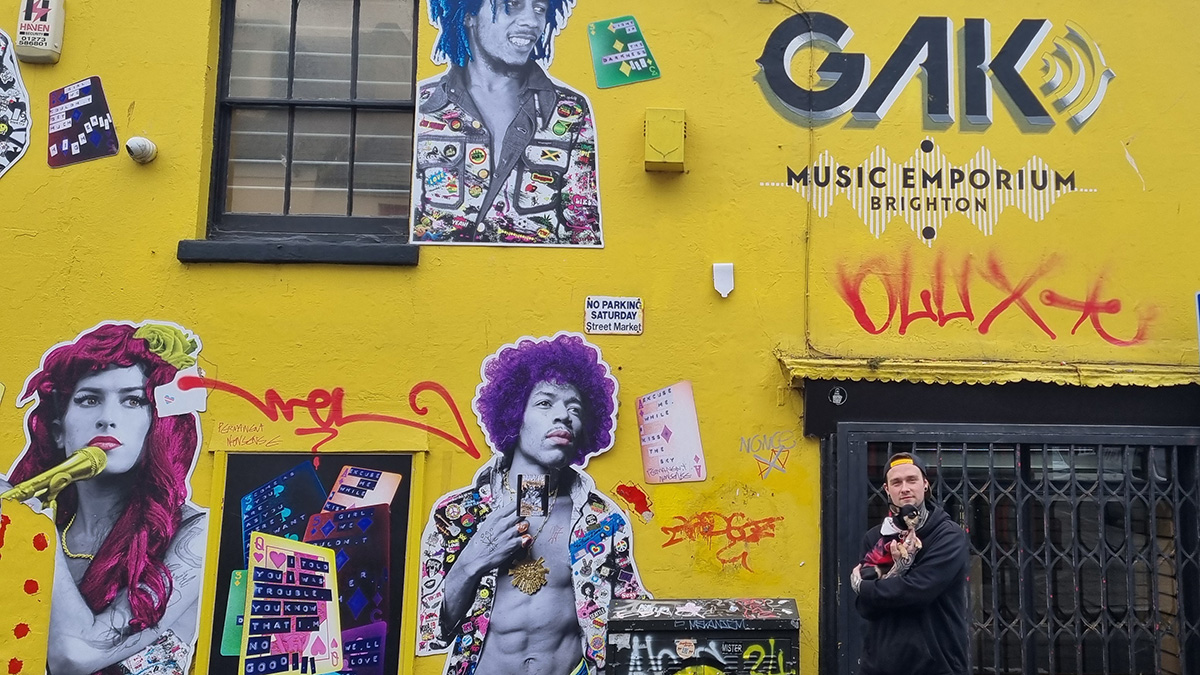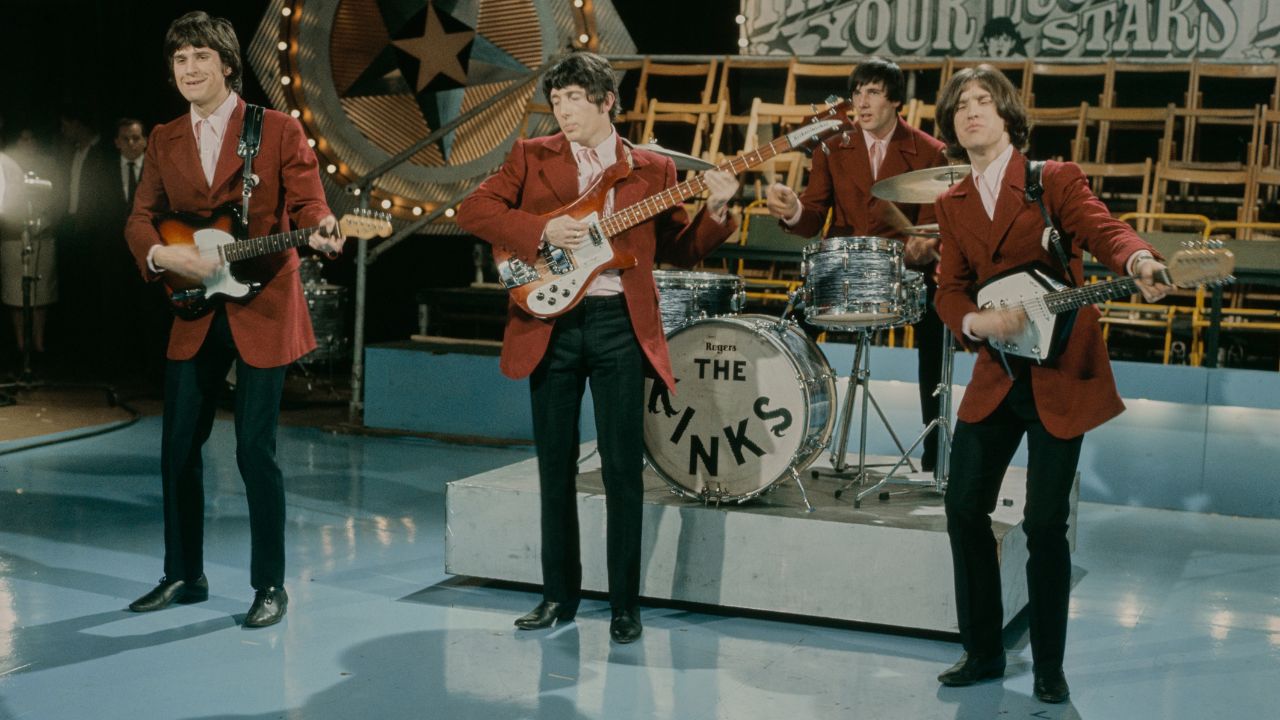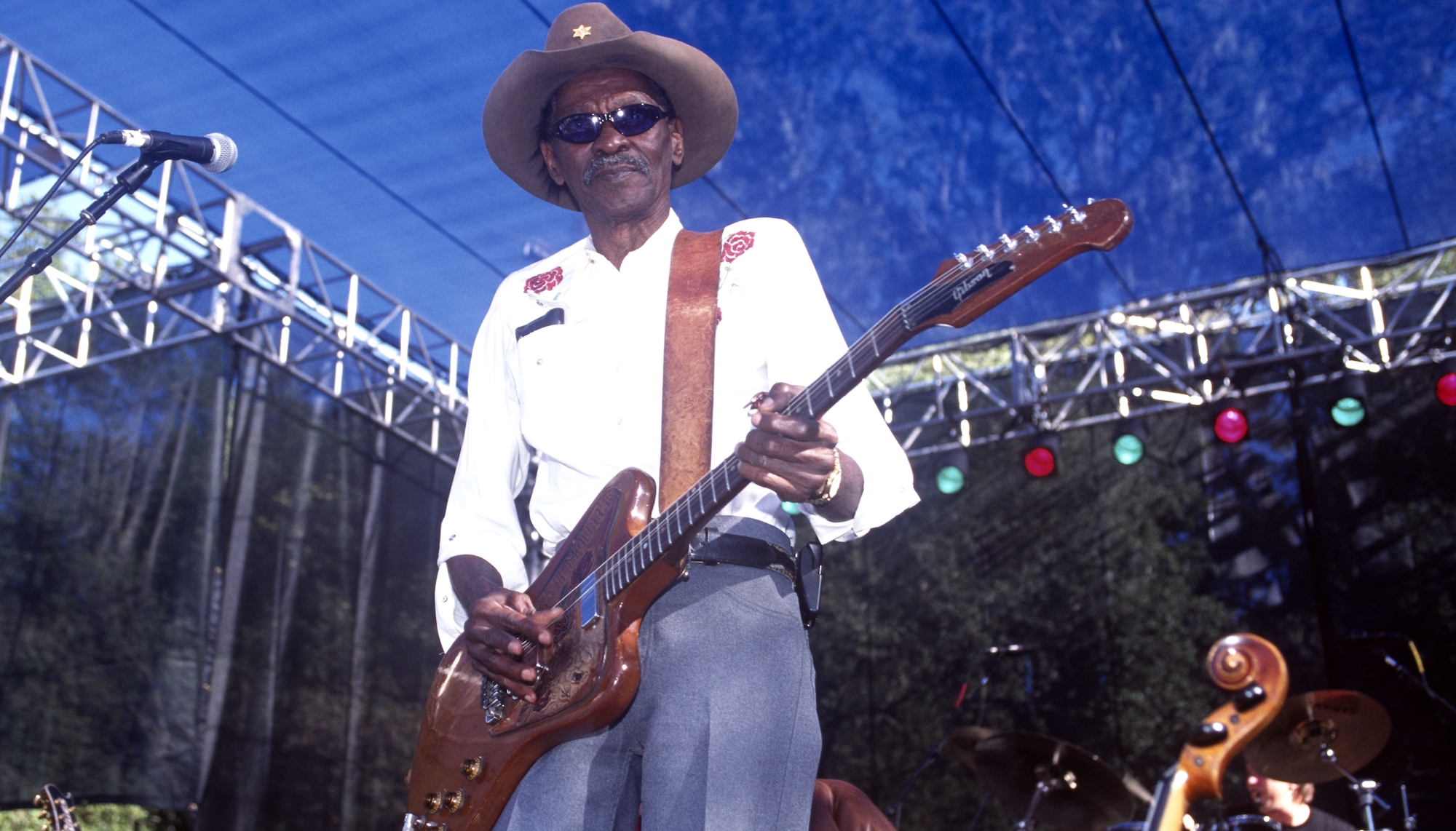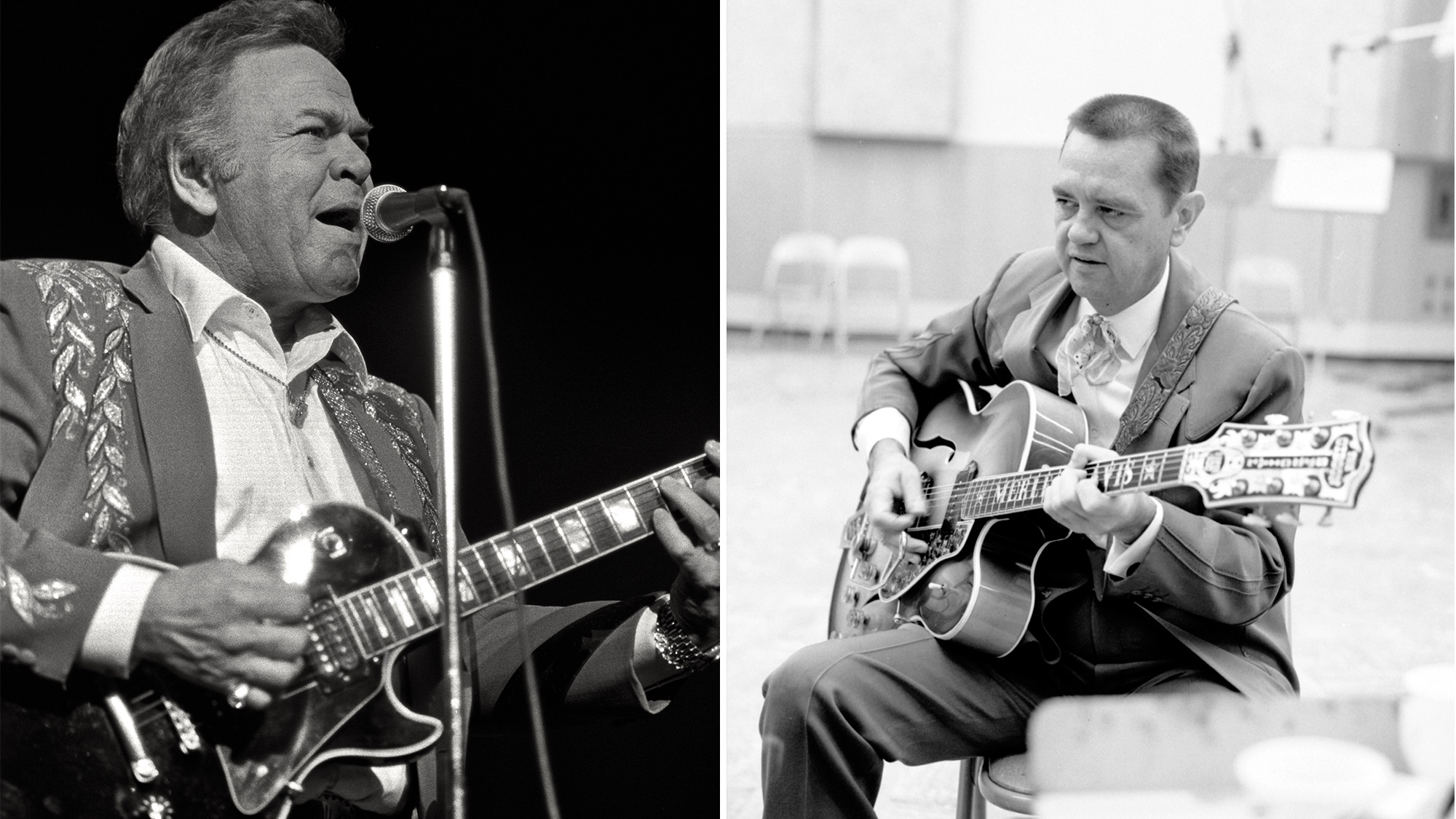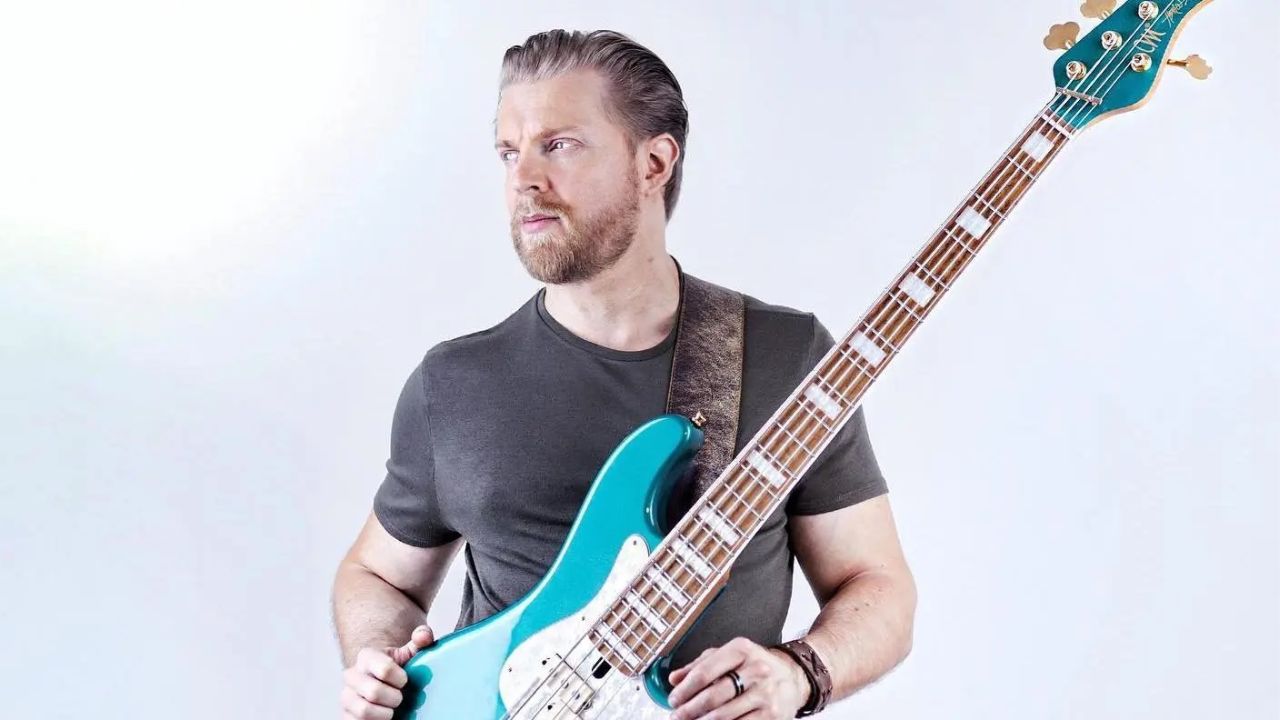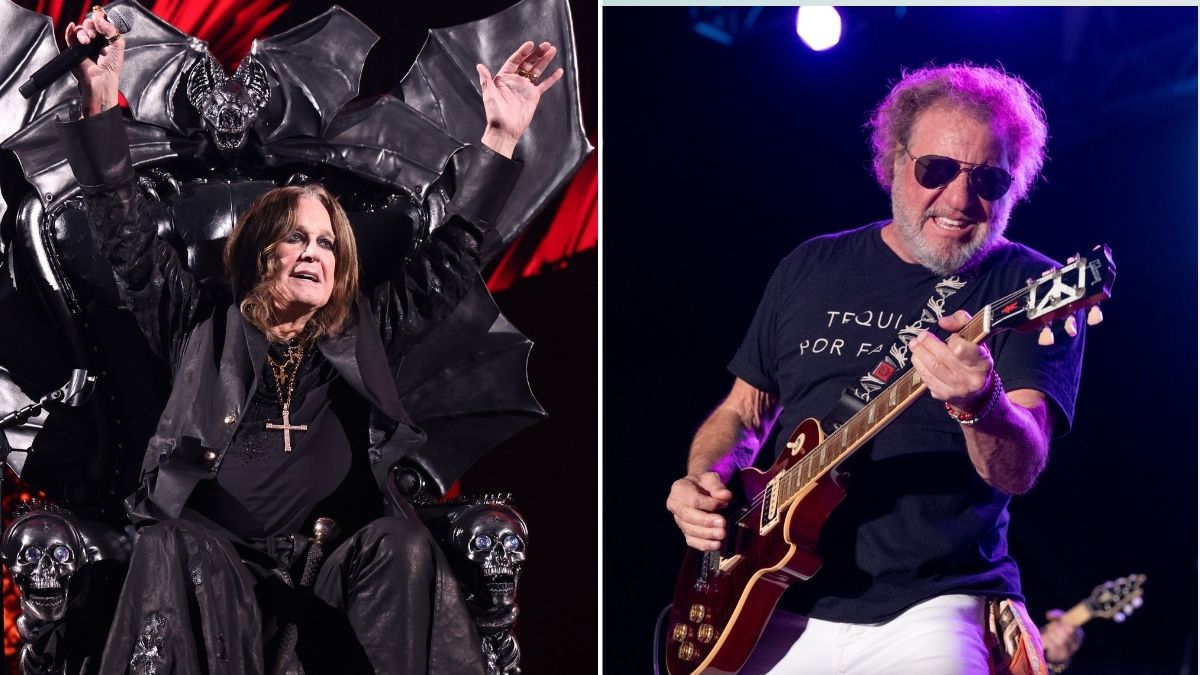Interview: Joe Bonamassa Discusses 'Afterglow' and the Current Status of Black Country Communion
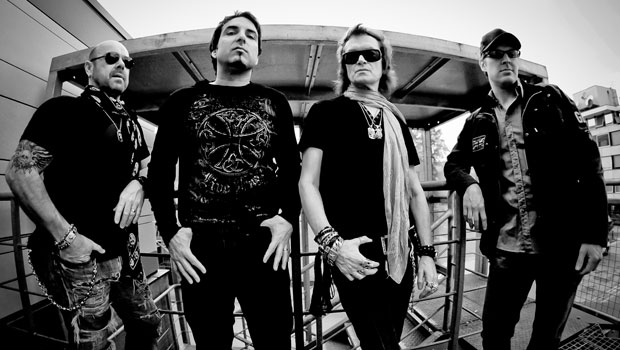
Black Country Communion — the retro-rocking supergroup featuring Glenn Hughes, Joe Bonamassa, Jason Bonham and Derek Sherinian — will release their third studio album in as many years, Afterglow, October 30 via J&R Records.
The powerful, riff-heavy album was predominantly written by bassist/vocalist Hughes, the band's self-declared "keeper of the keys."
"With the first album, I had six weeks [to write], and the second one was about four months," Hughes told GuitarWorld.com in March. "But I’ve had a lot more time to write this one. If you look at Joe’s schedule, he doesn’t even have time to wipe his nose."
Last month, however, while doing press for the new album, Hughes told ABC News Radio that Afterglow might actually be band's swansong. "This may be [Black Country Communion's] last album," Hughes said. "I hate to break it to you, but it just may be; I need to be in a band that tours on a regular basis."
This was news to Bonamassa, who heard Hughes' remarks secondhand and didn't appreciate what seemed an obvious reference to his busy — but predictable — solo touring schedule. A January 5, 2013, BCC gig in Wolverhampton, England, was cancelled, followed by a handful of not particularly warm-and-fuzzy tweets between Bonamassa and Hughes.
"You could set your watch to my tours in 2000, and you can set your watch to my tours in 2012," Bonamassa told GuitarWorld.com last week. "At the end of the day, when I say that, and I keep saying that, and all of a sudden somebody decides to change the rules and goes on a two-week press junket and essentially calls you out by name in hopes that it will bully you into a situation, well, don't take my kindness as weakness."
Here's our complete interview with Bonamassa, who discussed everything from ancient Les Pauls to the current status of Black Country Communion.
Get The Pick Newsletter
All the latest guitar news, interviews, lessons, reviews, deals and more, direct to your inbox!
GUITAR WORLD: Pardon my bluntness, but what's up with Black Country Communion right now?
Whatever's been said at this point initially wasn't said by me. When you go into a situation and you're honest and straight-up about something, you put all your cards on the table. I said, "Listen, I tour. I tour in the spring, I tour in the fall and I do something in the summer." I've always respected everybody in the group. I've spent 23 years building my career and I go out and I play and I enjoy that. Why bring unnecessary grief on one particular band member? He could just pick up the phone and say, "Hey, dude, this is how I'm feeling." It could've been a lot simpler than the way it's played out. So maybe he lost his phone or lost my number, but you can always get it from the office. Glenn is a wonderful cat and has a wonderful voice and writes great songs, and that's all I know at this point.
I read an interview where you said you were getting emails and comments from kids in Brazil who called you the blues antichrist because they wanted to see BCC perform — and now they might not get that chance.
Yes, and I'm going, "There's a lot more people that care about the band now than they ever did when we were touring." It's like I'm living in Bizarro World. I'm asking myself, "Why do all these kids from Brazil care so much?"
What can you say about the future of the band?
In terms of my future involvement with the band, quite frankly, I'm not sure.
Was there anything different about the band's approach to the new album?
When we signed up to do it, there was a time frame that was discussed. I was very clear about it. I said I had to finish my solo record, which was at the beginning of February of this year. Basically, 2011 was the hardest year on the road for me because I did a spring tour and a fall tour plus nine weeks in the summer, and I was pretty worse for wear by the time I got home in December. I know I was only 34, but that was a tough lap.
So I spent most of December and January off, and I needed to come up with material for the solo record [Driving Towards the Daylight], then we were basically out again. We went to Europe, we did the UK, we did some arenas in Germany. I came back, had a week off and went back on the road in the US for eight or nine weeks. All in all, I was on the road — between Europe, the US and South America — for 19 weeks. That's including the studio and everything. Plus I had committed to doing an acoustic tour in June, which was with a completely different band. It involved rearranging 20 of my songs for acoustic guitar, which I'd never attempted before. So it was a lot of work.
And there was BCC. I went to [producer] Kevin [Shirley] and the guys and said, "I might not have a whole lot of time to participate in this. If you want to move it, that's great. If you want to just carry on, I'm happy to do that, but don't rely on half the material coming out of my camp. You can only drill the well so many times."
Everybody was cool with that. Glenn was like, "I've got some songs stockpiled away" or whatever. So we got to the studio and Glenn brought in these rough sketches of tunes. Like all the songs we've recorded with the band, they started out as crude demos or rough sketches or half a riff, and they become Black Country Communion tunes. You have this five-man entity going full-throttle, attacking the songs like piranha. You can have a vision of a song, but all bets are off until Jason Bonham walks into the room and changes the game, and all of a sudden you're thinking, "I never thought about that drum beat." And it's the same thing with Kevin and Derek and Glenn. So that's how it worked. We had a great time in the studio, recording for a week in Thousand Oaks, California. We said goodbye, I did the acoustic tour, came back, listened to the record and thought it came out really good. Hallelujah! [laughs]
In terms of your setup, how do you approach a Black Country Communion album as opposed to a Joe Bonamassa album?
I basically bring my four-amp live setup for the solo stuff, and BCC is straight Marshalls. I actually play cleaner with BCC because there's so much sonic real estate being eaten up by Derek and Glenn and Jason. I find for me to kind of fit into the mix, I have to go play above and cleaner than the keyboards. Derek plays pretty distorted. I find my role is a bit cleaner, a bit more straight in with a Super Lead or a Jubilee or something like that. And then just hammer down. Whereas the solo records are way more dynamic, way more subtle, and I get a little more sonic space to play around in.
Not including your signature gear, is there a particular pedal you're into at the moment?
Jeorge Tripps just came out with the Way Huge [Ring Worm] Ring Modulator, which is just killer. And I just bought an original blue Fuzz Face. I bought it in Hawaii, of all places. Other than that, I've been toning down the pedal thing. As I get older and lazier, I don't want to hook it all up. I just figure out a way to get the tone by just plugging straight in.
I know you have a few seriously vintage Les Pauls, including a 1960 model with a Bigsby tailpiece. Have you ever noticed — on that guitar or any other Bigsby-fied Les Paul — a difference in the sustain as a result of the Bigsby? I should probably add that I'm a huge Bigsby fan and I ask because I'm thinking of adding a Bigsby to my 1960 Custom Shop model.
I've always been a fan of the five-speed transmission — on anything. I like the look of the Bigsby, I like the sound of a Bigsby. A lot of guys will say there's a sustain difference, but you have consider the fact that each guitar is different. Of the four original Les Pauls I own (three '59s and a '60), of the three '59s, they're all stoptail. The serial numbers are 0829, 1951 and 1688, so those last two were made probably within a month of each other. They're completely different guitars. They even have different neck shapes. There are good '59 Les Pauls and there are not-so-good ones. There are ones that are just OK, that don't sustain as well.
I think Gibson's custom shop gets judged unfairly against the great ones. I've played stuff that comes out of the custom shop that's fantastic, that will rival any vintage guitar. And you'll play some average ones as well. It's when they get the mixture just right — the pots, the wood, the weight — it just comes out great. It's like when you cook dinner. Sometimes things come out great and you don't know why.
So, in terms of the Bigsby, there are some great Bigsby guitars and there are some average ones. The one I have, the '60, I've always loved it. It's a fantastic guitar that sustains just as well as the ones with the stoptail. I don't hear a difference.
I know you're a huge fan of the Eric Clapton, Peter Green and Mick Taylor eras of John Mayall & The Bluesbreakers. Can I get your top five Bluesbreakers songs in terms of their importance and "guitar-centric usefulness" to young guitarists who might not be familiar with the band?
I love talking about the Bluesbreakers. As far as the Clapton-era stuff, it has to be "All Your Love." When they go into that shuffle mode, it's just a pivotal blues guitar solo. Then there's "Hideaway." It took me 20 years to figure what register Clapton was playing in. I also like "Have You Heard." (Actually, it's a tie between "Double Crossing Time" and "Have You Heard.") For Peter Green, I'll take "So Many Roads." Forget it, that's the best. And "Another Kind of Love" is killer. There's so many to choose — it depends on the day. I can name 20. And that's before you even get to Blues from Laurel Canyon [featuring Taylor].
Getting back to those four classic Les Pauls of yours, which would be first one you'd grab and rescue in the event of a fire?
I have a fire drill! I kid you not — I've actually practiced it. I can get four guitars in their cases — two under my arms and two in my hands — and I can walk right out the door. So I'll take all four [laughs].
For more about Black Country Communion, visit their official website and Facebook page. Keep up with Joe Bonamassa at his official website and Facebook page.
Photo: Christie Goodwin
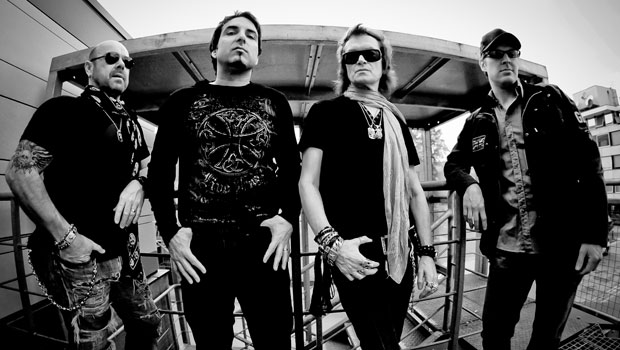
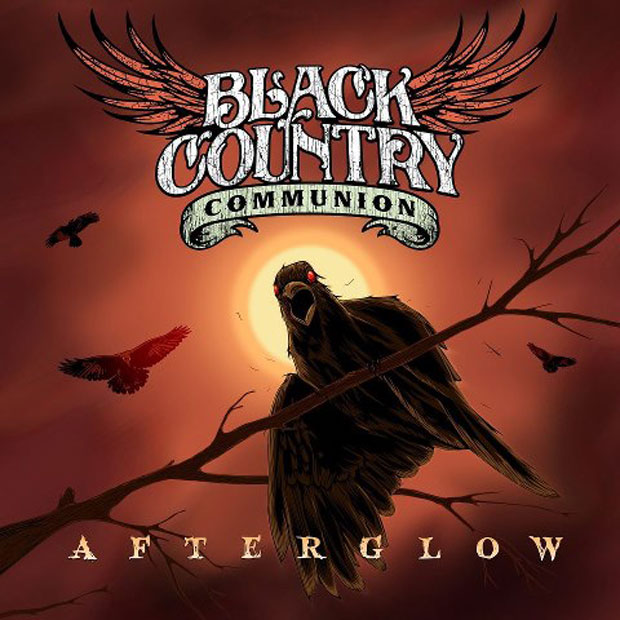
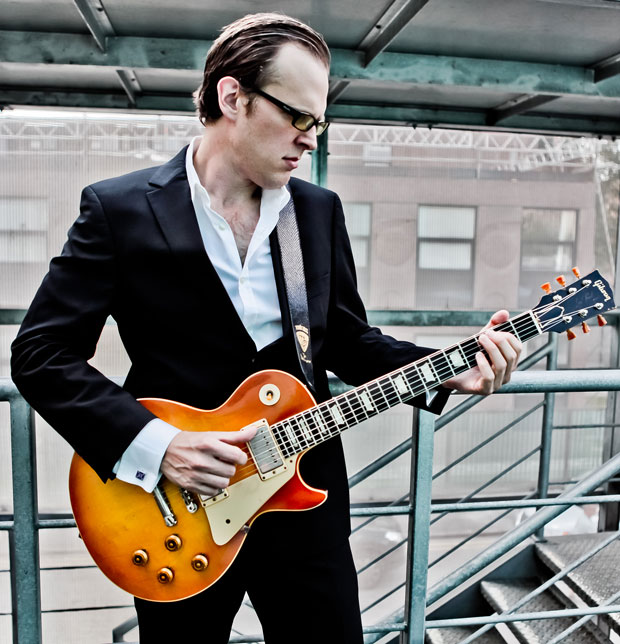

Damian is Editor-in-Chief of Guitar World magazine. In past lives, he was GW’s managing editor and online managing editor. He's written liner notes for major-label releases, including Stevie Ray Vaughan's 'The Complete Epic Recordings Collection' (Sony Legacy) and has interviewed everyone from Yngwie Malmsteen to Kevin Bacon (with a few memorable Eric Clapton chats thrown into the mix). Damian, a former member of Brooklyn's The Gas House Gorillas, was the sole guitarist in Mister Neutron, a trio that toured the U.S. and released three albums. He now plays in two NYC-area bands.
English folk icon Wizz Jones – guitar hero of Keith Richards, Eric Clapton and Thurston Moore – has died at 86
“Damn, that guy could shred. Can you imagine what that would have sounded like?” Wednesday 13 says the late Alexi Laiho once came close to joining him and Slipknot’s Joey Jordison in Murderdolls
